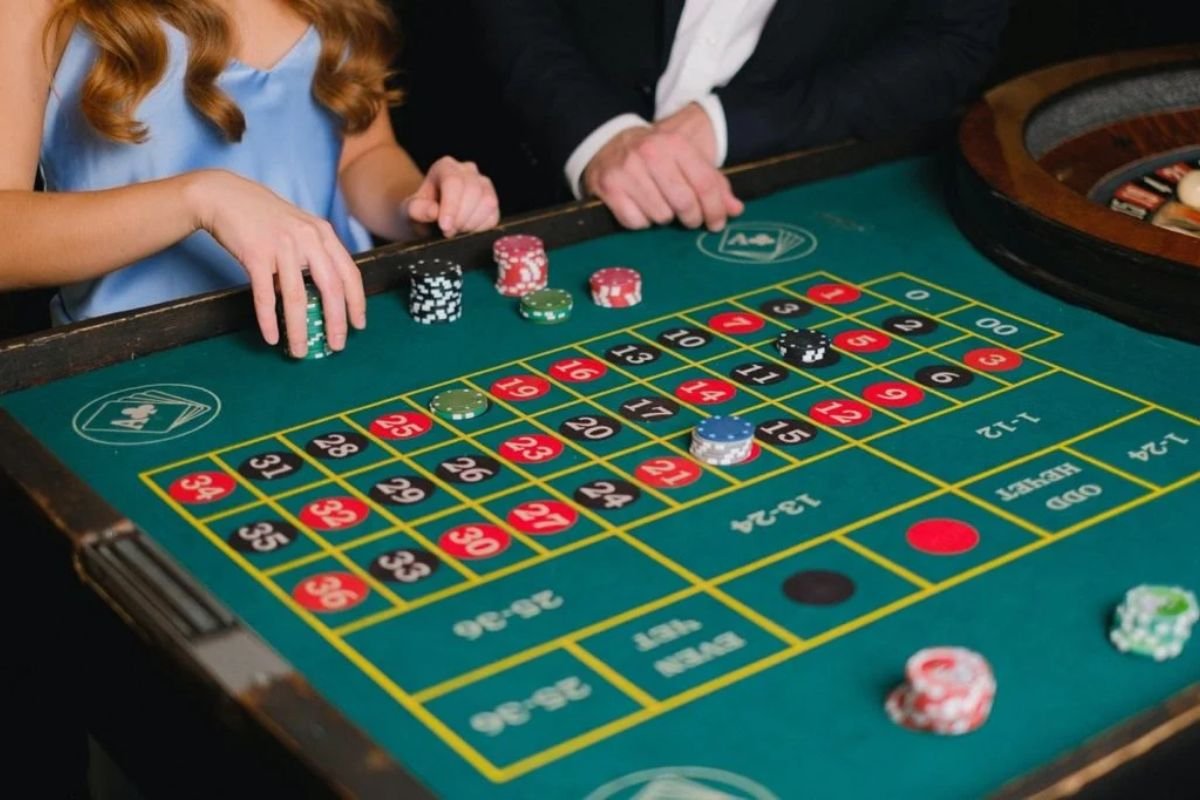Did you know that casinos make money because of maths, not luck? As Nico Zographos, a dealer in the 1920s, put it, “There is no luck; it’s all mathematics.” In the long run, the house almost always wins, not by chance, but because they have a maths advantage over players. Mario Puzo, in “Fools Die,” nailed it: “Percentages never lie. We built all these hotels on percentages. We stay rich on the percentage.” Without this casino mathematics “edge,” casinos wouldn’t be here. This edge, combined with the law of large numbers, means that, over time, a casino is pretty much guaranteed to come out on top.
So, let’s explore the casino mathematics and see what house edge means.
Probability and Odds – Decoding the Game!
In the casino mathematics, knowing about probability and odds is one of the fundamental things you need to learn. Let’s make it simple.
Cracking Probability
Probability is about the long-term ratio of how often something happens when we try it many times. For example, if you pick a card from a standard deck of 52, the chance it’s a spade is 1 in 4 (or 1/4). It means if we do this a lot, about one-fourth of the time, we’ll get a spade.

And, if we get a look at the slot games, the probability is quite low. Since slots have a lot of different combinations and patterns, getting the one you need is quite hard. To put it in perspective, the probability of getting 5 symbols on one line is between one-in-5000 to one-in-35 million.
But this doesn’t mean that slots don’t pay out. You can get solid prizes with 3 or 4 symbols lining in, which have much better odds of showing up. Therefore, those who’d like to test things out but don’t want to break the bank can do so in the 3 pound deposit casino.
Making Sense of Odds
Odds tell us the long-term ratio of how often something doesn’t happen compared to how often it does. Using the card example, the odds against getting a spade are 3 to 1. This means over time, you’re likely to get a non-spade three times for every spade.
True Odds – the Fair Game Factor
Now, let’s talk about true odds. They show the payoff that would make a bet fair. Take a bet on a single number in double-zero roulette, for example. The chance of hitting that number is 1 in 38. So, to break even over time, a player should get paid 37 to 1. But, the actual payoff is 35 to 1, giving the house a bit more advantage.
So there we have the house edge, a thing that makes casinos rich. Let’s see more about that, shall we?
House Edge – How Casinos Stay Ahead?

Winning or losing isn’t just about luck; it’s a numbers game, and the casino mathematics usually has the upper hand. Now, let’s see how they do it and what the house edge is.
Your Chances – Wager Expected Value (EV)
Your chances of winning in a casino depend on the game, its rules, and sometimes your skill level. The expected value (EV) is like the average amount you can expect to win or lose over time with repeated bets.
If your expectation is negative, you’re likely to lose money in the long run. For example, placing a $5 bet on red in roulette might mean losing just over a quarter on average for each bet.
Casino’s Advantage – House Edge
Now, let’s see it from the casino’s side. The house edge is like the casino’s advantage, calculated as a percentage of what they’ll keep from all the bets. For the roulette example, the house edge is 5.26%, showing how much, on average, the casino keeps.
Casinos use this money to keep the wheels rolling so gamblers can have places to play. No matter if the casino is land-based or online, the principle stays the same. Still, you can try out no download slots if you’re unsure about your skills. You can read more about it if you visit this site.
Cost to Play – House Edge
The house edge, also known as the odds or percentage, is what the casino keeps from your bets in the long run. Whether it’s roulette or other games, the house edge tells you how fast your money might be lost.
A game with a higher house edge means you’ll likely lose money quickly. So, to play wisely, avoid games and bets with big house advantages.
About the Win Rate

Percentages like win rate, theoretical win, hold rate, and house advantage can be confusing. Let’s keep it simple.
First of all, we have the house advantage, a thing that keeps the money for casinos. The house advantage, also called the house edge or theoretical win, is the percentage that shows how casinos make money.
For example, in double-zero roulette, it’s 5.3%. Over time, the house keeps 5.3% of the money you bet. In the short term, the actual win percentage might differ, but stats help predict it.
Second, there’s a hold percentage. Handle, which is not easy to measure for table games, leads to hold percentage. Hold percentage is win divided by drop. In Nevada, it’s around 24% for roulette. But an honest casino won’t keep 24% of the money bet in the long run.
So, what’s the bottom line after all this? Here’s a quick overview:
- House advantage and theoretical win are buddies.
- Hold percentage is win divided by drop.
- Win percentage is a win divided by a handle.
- The win percentage gets closer to the house advantage with more plays.
- Hold percentage equals win percentage for slots but not for table games.
Simple, right? Understanding these numbers helps you see through the casino mathematics.
Conclusion
Numbers rule the game; that’s a fact! From understanding probabilities and odds to grasping the house edge, maths shapes every bet. Now, it’s on you to learn the ropes of casino mathematics. After all, with every bet you make, the casino gets a cut. So, making the most out of gambling sessions surely requires some knowledge.






